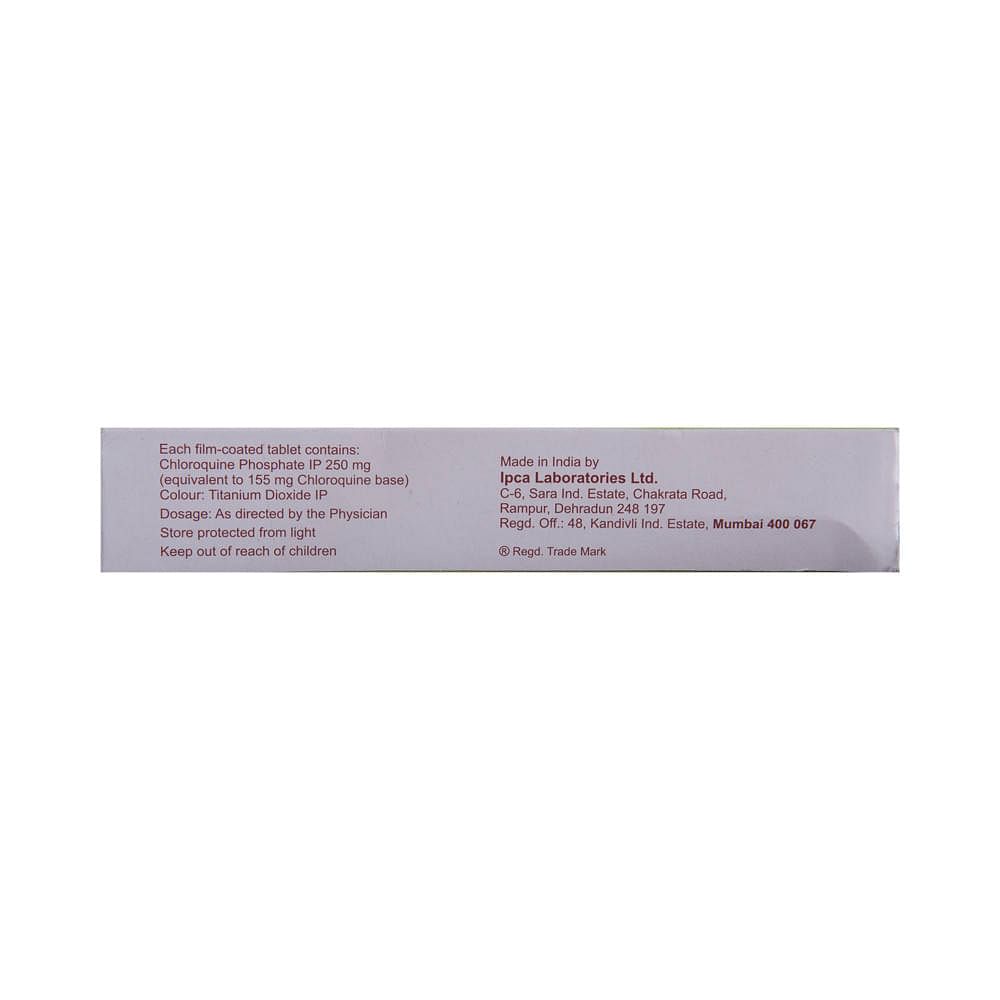
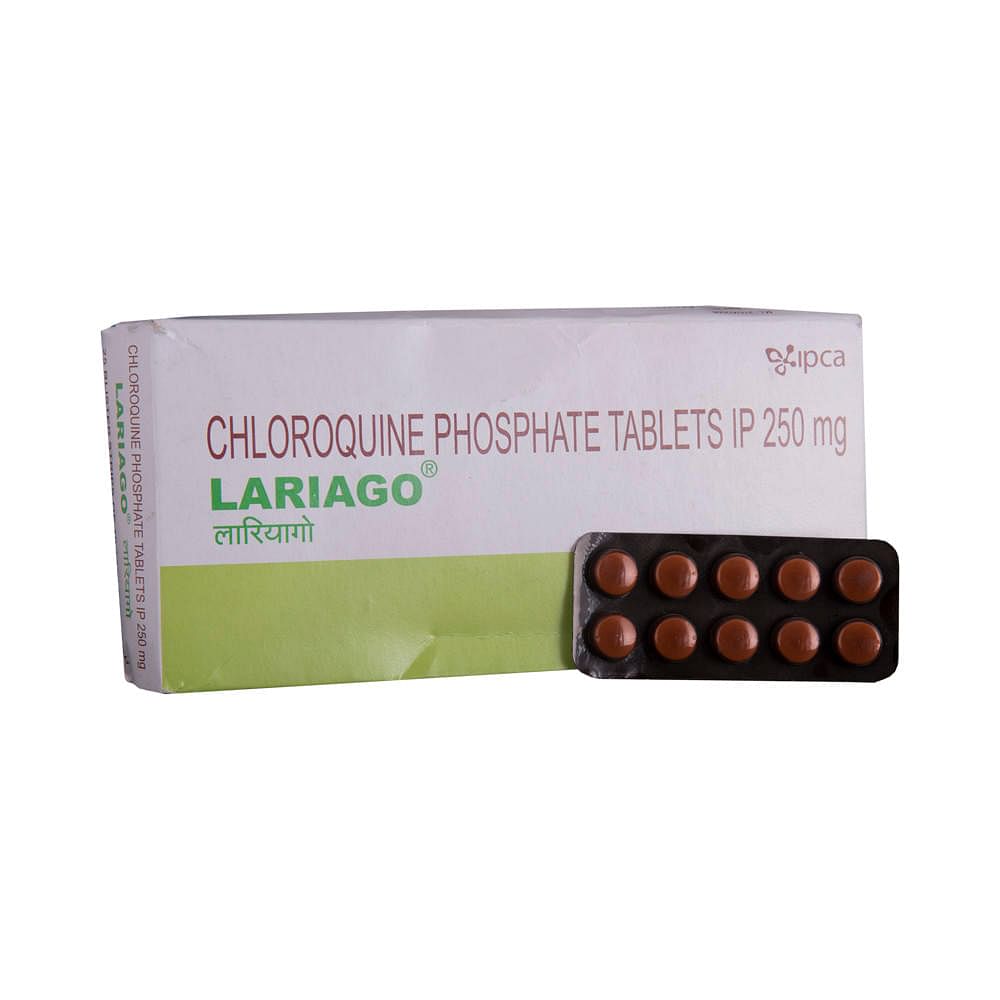

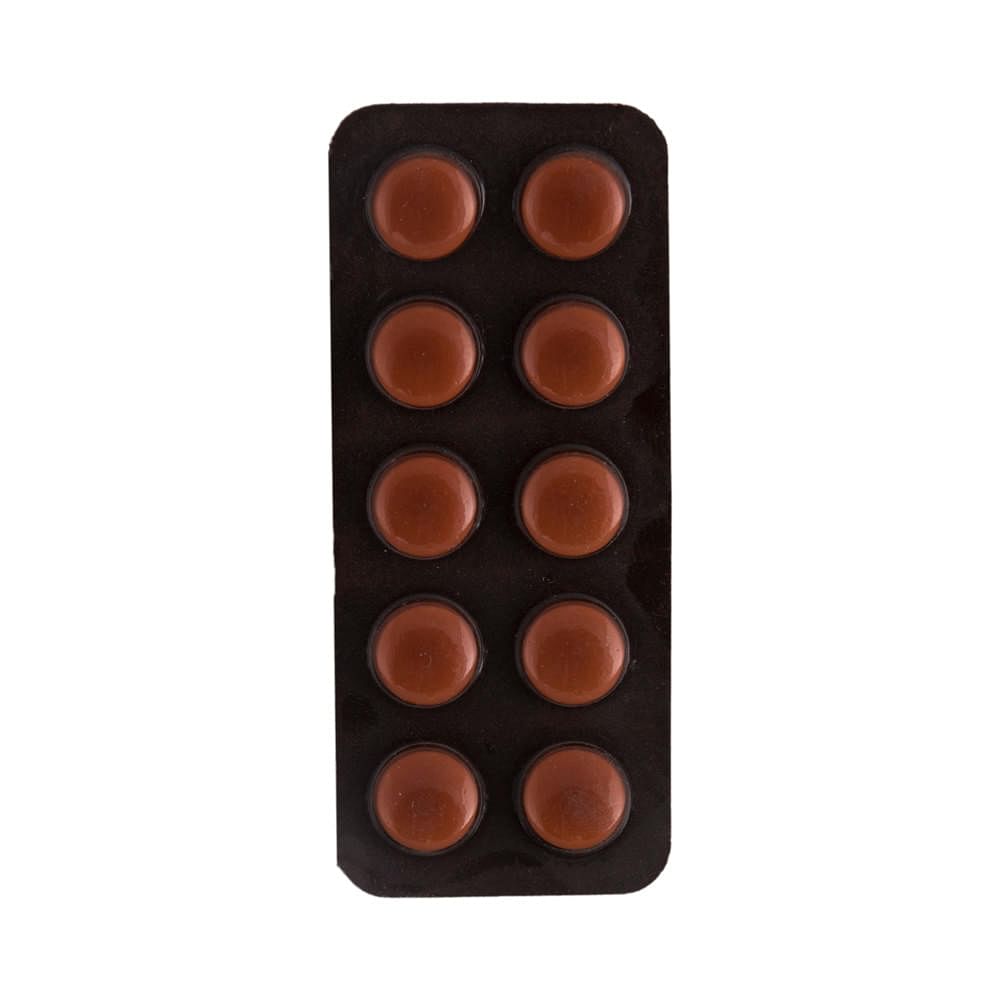
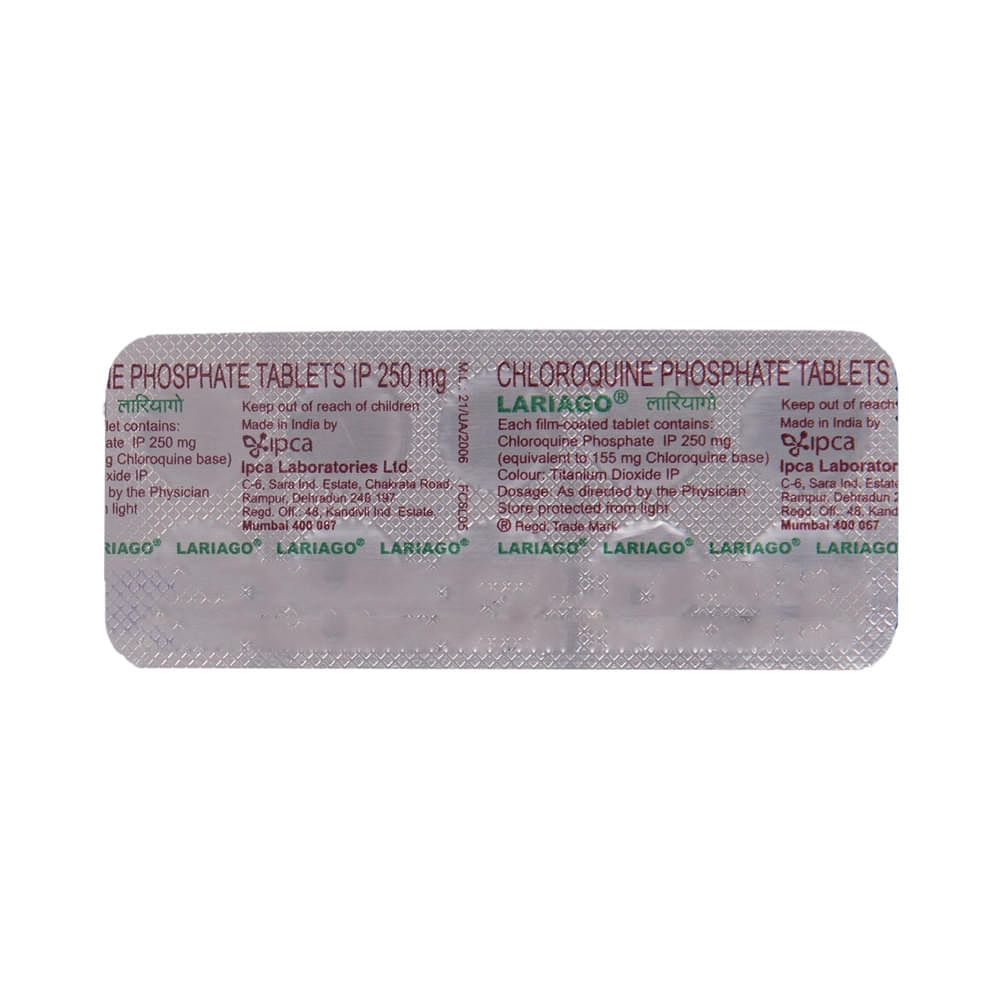
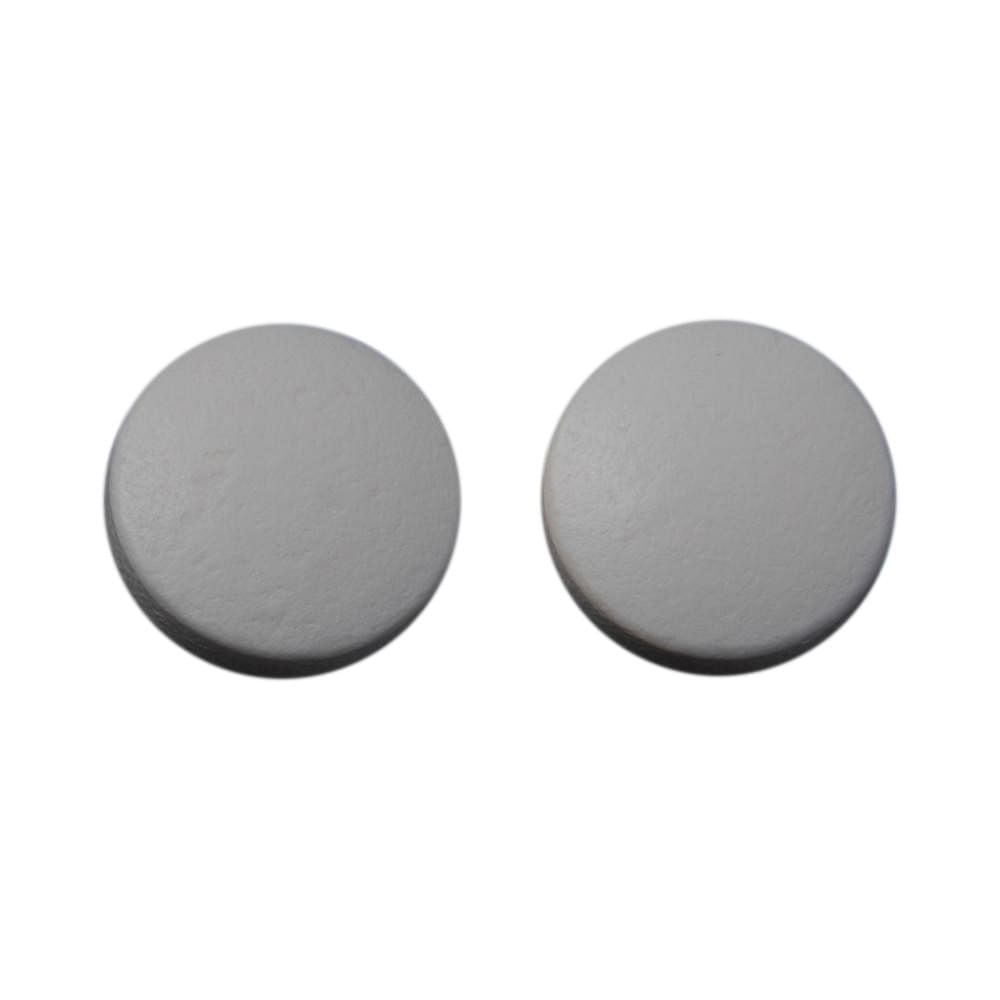
Lariago Tablet
Manufacturer
Ipca Laboratories Ltd
Salt Composition
Chloroquine (250mg)
Key Information
Short Description
Lariago 250mg Tablet is an antiparasitic medicine used for the prevention and treatment of malaria. It works by killing the malaria-causing parasite and stops the infection from spreading.
Dosage Form
Tablet
Introduction
Lariago 250mg Tablet should be used in the dose and duration as advised by your doctor. Take it with food to decrease the risk of stomach upset. Do not skip any doses and finish the full course of treatment even if you feel better. Stopping it early can result in treatment failure and increase the side effects too. Do not take a double dose to make up for a missed dose. Simply take the next dose as planned. Take measures to reduce the chance of being bitten by mosquitoes like using insect repellent creams on parts of your body not covered by clothing. Spray mosquito repellent to kill any mosquitoes that may have entered rooms in spite of screening. Wear light-colored and covered clothing when you are outside after sunset. Some people may experience rash, headache, dizziness, and vomiting as side effects of this medicine. It may also cause stomach pain, diarrhea, loss of appetite, and nausea. Please consult your doctor if these side effects persist for a longer duration.
Directions for Use
Take this medicine in the dose and duration as advised by your doctor. Swallow it as a whole. Do not chew, crush or break it. Lariago 250mg Tablet is to be taken with food.
Safety Information
Side Effects
Rash Headache Dizziness Vomiting Stomach pain Diarrhea Loss of appetite Nausea
Alcohol Warning
It is not known whether it is safe to consume alcohol with Lariago 250mg Tablet. Please consult your doctor.
Breastfeeding Warning
Lariago 250mg Tablet is safe to use during breastfeeding. Human studies suggest that the drug does not pass into the breastmilk in a significant amount and is not harmful to the baby.
Pregnancy Warning
Lariago 250mg Tablet may be unsafe to use during pregnancy. Although there are limited studies in humans, animal studies have shown harmful effects on the developing baby. Your doctor will weigh the benefits and any potential risks before prescribing it to you. Please consult your doctor.
Interacting Medicines
Leflunomide Mefloquine Penicillamine Digoxin
How it works
Lariago 250mg Tablet is an antiparasitic medication that treats malaria. It works by increasing the levels of haeme in the blood, a substance toxic to the malarial parasite. This kills the parasite and stops the infection from spreading.
Quick Tips
Wear light-colored and covered clothing when you are outside after sunset Use insect repellent creams or sprays on parts of your body not covered by clothing Spray to kill any mosquitoes that may have entered rooms despite screening It may cause a blurring of vision when you first start taking it. Use caution while driving or doing anything that requires concentration Eye examination before and at 3–6 monthly intervals during use is required if patients are receiving Lariago 250mg Tablet at continuous high doses for a longer duration It may cause low blood sugar levels. Monitor your blood sugar level regularly if you are diabetic When used long-term, your doctor may monitor the amounts of the different types of blood cells in your blood regularly. Inform your doctor if you have unexplained bruising or bleeding, sore throat, fever, or a general feeling of tiredness
Related Medicines

Melubrin 250mg Tablet

Resochin 250mg Tablet

Nivaquine P 250mg Tablet

Resochin Tablet

Mahaquin 250mg Tablet

Indiquin 250mg Tablet

Malacure 250mg Tablet

Zenquin 250mg Tablet

Match Q 250mg Tablet

Keren 250mg Tablet
Frequently asked questions
What is Lariago 250mg Tablet and what is it used for?
Lariago 250mg Tablet is an anti-malarial medication used to treat and prevent malaria.
How long does it take for malaria symptoms to show?
Symptoms of malaria can develop as quickly as 7 days after being bitten by an infected mosquito. Symptoms often appear within 7 to 18 days (incubation period) from the infection. Initial symptoms include flu-like features like fever, chills, muscle pain, vomiting, headache, and diarrhea.
Is it safe to use Lariago 250mg Tablet for a long period of time?
If you are taking Lariago 250mg Tablet for an extended period, your doctor should check your eyes regularly. This is because chloroquine, which is present in the medication, can cause blurred vision, difficulty reading (due to words disappearing), and retinopathy, a rare eye condition if taken long term.
Who should not use Lariago 250mg Tablet?
Inform your doctor if you have psoriasis before taking Lariago 250mg Tablet because it may worsen your condition.
What are the side effects of Lariago 250mg Tablet?
Common side effects include stomach pain, nausea, vomiting, and headache. These side effects can often be reduced by taking the medication with food.
Can chloroquine cure coronavirus (COVID-19)?
There is not enough scientific evidence to confirm that chloroquine effectively treats COVID-19. Consult your doctor for appropriate treatment of COVID-19.
Can I take antacids along with Lariago 250mg Tablet?
If you are taking an antacid, give a gap of at least 4 hours between the two medications.
What is the difference between hydroxychloroquine and chloroquine?
Both hydroxychloroquine and chloroquine were initially approved for malaria treatment. However, chloroquine generally leads to more side effects than hydroxychloroquine. As a result, hydroxychloroquine is more commonly used today. Hydroxychloroquine is also approved to treat rheumatoid arthritis and lupus, whereas chloroquine is not.
How can you prevent yourself from getting malaria?
To prevent malaria infection, it's important to take preventive measures such as: covering your arms and legs to avoid mosquito bites. Utilize a mosquito net, and consider using insect repellent.


